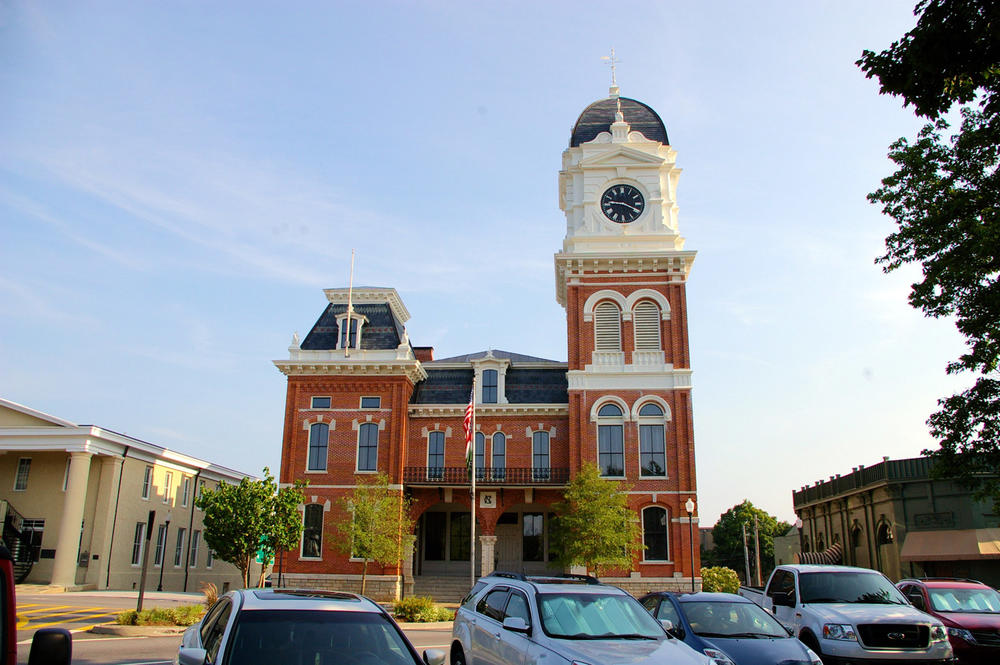Section Branding
Header Content
Newton County Officials Raise Environmental Concerns As Roadblock To Proposed Islamic Burial Ground
Primary Content
There’s a new development in the controversy over a proposed mosque and Muslim cemetery in Newton County. In a meeting Tuesday night, the Newton County Commissioners agreed they want to protect local water supplies from what they say are “unsafe burial practices.”
During the public courthouse meeting, County Manager Lloyd Kerr explained green burials to the audience. “Typically,” he said, “this has been the idea of placing a body in a burial shroud and then placing it in the ground is something that is part of the Islamic faith, it’s also a very similar practice is done in the Jewish faith.”
The commissioners are worried that burial outside of a sealed container (aka: green burials) will lead to pollution of local water sources – rivers, streams, lakes and wells that Newton residents rely on daily. They want to demand burial inside of a casket, a sealed container, a lined container, or a vault of some kind to prevent water pollution. Kerr said that they’re taking the proposed sealed-container policies from Macon-Bibb County, which implemented them in response “to some severe flooding that occurred… in the early ‘90s.”
According to County Commissioner Douglas, this is a real issue for local residents. “We’re faced with the question of whether Newton County should work to protect our own environment,” Douglas said. “Many of our citizens, particularly in the first district, still use wells in their daily water usage. We’re blessed with abundant water supply in our rivers, streams, and lakes.
“None of that will count for anything,” he continued, “if we do not aggressively protect what we have. It is for those reasons, and because this is a zoning action that requires a certain path before a vote can be taken, that I would like to agree that we send these Macon-Bibb County burial regulations to our planning and zoning board for their consideration before we take any final action. I hope this board will agree with the great majority of our citizens in Newton County, and with me, that we only get one chance to protect our environment, so we need to get it right”
Bobby Huggins, a retired veteran, lives less than a mile from the proposed cemetery. Huggins has lived at the same location for 21 years. He’s concerned about the proposed burial ground. He spoke to the commissioners Tuesday evening.
“When we had the moratorium here, I stood up and said, let them build a mosque. I’m not against that. I’m not against anybody’s religion,” he said.
“I live there, been on the well-water for 21 years. And if they come here and start dumping them like nobody know what they’re doing, and two years later dig them up and put the bones somewhere else – no. This is America, if we want to make our rules it’s got to be sealed. My people been sealed. I buried a brother when I was twelve years old. Back then it was a concrete box… but that’s got nothing to do with their religion, that’s got something to do with the way they’re being buried… So you know, I don’t want it.”
In an interview after he spoke to the commissioners, Huggins admitted that he is worried about a potential connection between the construction of the Newton County mosque and terrorism. He made no further mention of what he voiced publically in the meeting: concern over green burials and water pollution in Newton County.
No state law mandates burial in a casket – or a sealed container of any kind, in fact. But cemeteries can individually impose closed or sealed casket policies.
The commissioners’ argument against green burials is couched in concerns over pollution – but locals were prepared to address those environmental concerns at the meeting. Maurice Carter was among them. He wanted to speak more broadly on the imprudence of stopping green burials in Newton County. “My own research found elements in the environment that eventually degrade any casket and open cracks in any vault,” he argued, responding to the commissioners’ logic that sealed caskets and their contents don’t pollute the environment.
But beyond Mr. Carter’s testimony, there remains a question: what exactly are the environmental ramifications of green burials? And of typical embalming burials?
A study from the Green Burial Council sheds some light, noting “the potential for contamination of drinking water due to body decomposition, though possible and frankly expected if best management practices are not followed, is not definitively substantiated by studies at this time.”
The study can confirm, however, that embalming practices – standard in non-Muslim or non-Jewish burials – use more than 4.3 million gallons of embalming fluid per year. Embalming fluid contains known carcinogens like formaldehyde. No container is completely leak-proof; a casket, a tomb, even a concrete box will degrade over a matter of weeks, years, or decades. The embalming fluid used in non-green burials must go somewhere. Generally, it heads straight into the soil.
In recent years, there has been increased interest in the practice of green burials. Groups nationwide are working to promote the practice because of the potential positive environmental impact.

